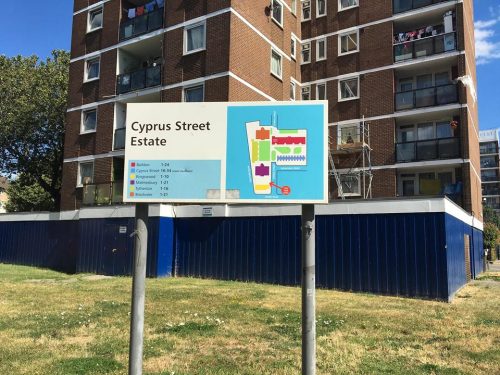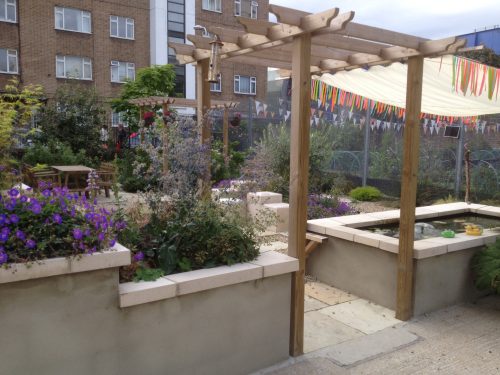Back in 2019 , I was recommended to visit an art exhibition at The Wellcome Collection “Living with Buildings”, surprisingly entertaining. One of the stand out messages for me was how many buildings and estates were described as architectural visions or dreams.
Black and white pictures of “play-decks” created on the Pepys Estate between 1966 and 1970 depicted what with hindsight seem to be very bleak landscape for imaginative play and certainly would put most millennial parents’ and the health and safety brigade’s teeth on edge.

Many landlords have repurposed or demolished play-decks, seeing them as opportunity sites and designers sure like to design child-friendly amenity space or opportunities for informal play. Ask a child to draw a play space and the ideas range from what they know (swings, footballs) to the fantastical (space rocket a particular favourite) but without fail the draw space is full of – well, children. It’s the space to be children together that is important not what is in it, hence the concrete play-decks are remembered fondly.
Lots of our work is alongside architects. All of them tend to be talented designers, some a bit bonkers, some great at community consultation events, but only a few are good at listening to residents and hardly any give credence to the views of children.
Fast-forward 50 years and the creation of a “play-street” which won many plaudits in Hackney with large boulders, logs, a water feature, and a hammock along with some bespoke planting and equipment. (Health and Safety experts divert your eyes).
“Yes but what is it for?” questioned a persistent six year old when the architects unveiled the equipment. A workshop on play was included in the grand opening of the scheme and the same child remained unconvinced. 6 years on and the space is imbedded in the central part of the estate but many of the features have been removed due to safety concerns. A lovely space nevertheless. The persistent six year old now an early teen walks through on her way home from secondary school where the puzzling item once stood “I told you so” she said. From the mouths of babes…….
A few learning points for consulting about play:
- A child does not need to be taught to play, they just want opportunities for play
- Think about the management of your grand designs, who will be cleaning it, how are the materials when wet/ gritted / frozen / under a heatwave?
- Really listen to tenants and their children what they are saying about your designs for their estate










